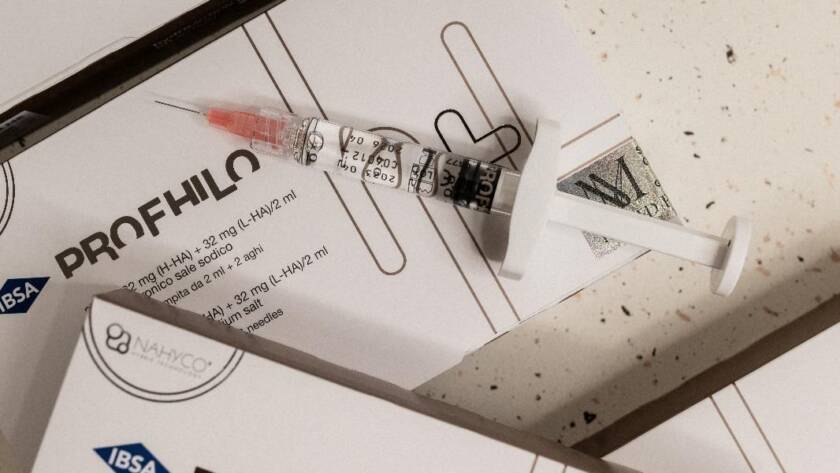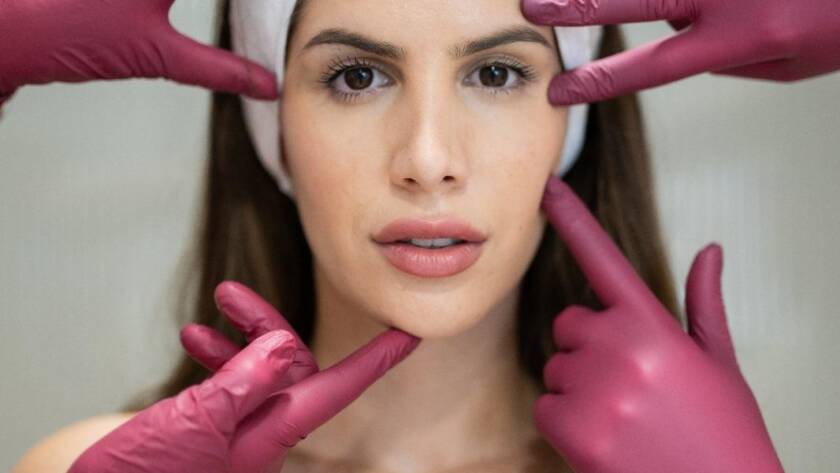Acne scars pose an aesthetic challenge, especially among younger people, and there is an increasing demand for non-invasive treatments to address them.
Understanding the Causes
In combating acne scars, it’s crucial to understand that multiple factors influence the success of treatment. Besides external treatments, internal processes in the body play a vital role, as recurring acne can disrupt progress in scar treatment. A proper assessment of the condition of the scars is the foundation for choosing the right treatment.
It’s also important to consider age, as skin regenerates and responds differently to treatments at various stages of life. A comprehensive approach that includes regulating internal processes and tailored external treatments can significantly improve the chances of successful scar removal.
1. Assessing Skin Condition
The first step in treating acne scars is a detailed assessment of the skin’s condition. It’s essential to identify the type of scars – are they shallow or deep, atrophic or hypertrophic? Understanding the condition of the skin is key to choosing the right treatment. Examination, touch, photography, and consultation with a specialist help in the assessment and enable the selection of the most effective treatment methods for your specific case.
Atrophic and hypertrophic scars are two different types of scars that can appear after acne. Atrophic scars are sunken or indented scars caused by the body not producing enough collagen during healing, commonly found on the face. Hypertrophic scars, on the other hand, are raised scars that occur when the body produces too much collagen. Both types can affect the skin’s appearance but differ in causes and treatments.
2. Choosing the Right Treatment for Acne Scars
The choice of treatment depends on age and skin condition. Younger people with milder scars may benefit from surface treatments like chemical peels, while older individuals or those with deep scars may require more intensive approaches like microneedling.
Age and Treatment Choice
Younger individuals typically have skin that regenerates faster, so milder treatments like chemical peels may suffice for treating surface scars. These treatments refresh the outer skin layer, promoting a fresh appearance without deep interventions.
Recommended treatments for young skin:
- Chemical Peels: Light chemical peels can effectively refresh the skin, reduce surface scars, and improve texture.
- Special Creams and Serums: Products containing retinoids, vitamin C, or AHA/BHA acids can help reduce scars and improve the overall appearance of the skin.
For mature skin, recommended treatments include:
- Deep Chemical Peel: Can improve skin texture and reduce the visibility of deeper scars.
- Mesotherapy: Introducing vitamin cocktails directly into the scarred skin.
- PRP: Using growth factors from your own blood to promote high regeneration of scar tissue.
- Microneedling: Stimulates skin renewal and collagen production, effective for improving elasticity and reducing scars.
- Dermal Fillers: Can help fill atrophic scars and improve skin contours.
Skin Condition and Treatment Choice
For those with deep scars, especially older individuals whose skin may not respond quickly to mild treatments, more intensive approaches are necessary. Microneedling, mesotherapy, and PRP are popular methods for severe cases, as they penetrate deeper into the skin, promoting collagen production and significantly improving skin texture.
3. Treating Scars Naturally
Natural methods for treating acne scars can be gentle yet effective, especially for people who prefer natural care.
- Vitamin E Oil is known for its skin regeneration properties and can be applied directly to scars to improve their appearance.
- Aloe Vera Gel is another excellent choice due to its anti-inflammatory and healing properties, soothing the skin and promoting renewal.
- Honey and Cinnamon Masks are used for their antibacterial properties, helping to cleanse pores and reduce the visibility of scars.
These natural treatments can be beneficial for individuals with sensitive skin or those who prefer to avoid aggressive chemical treatments. However, natural scar treatments typically require patience, with expected results after at least 2-3 months of regular use. While effective for young skin that regenerates more quickly, natural treatments may not be sufficient for deeper or older scars, which often require more intensive medical procedures.
4. Supplements for Faster Skin Renewal
Supplementation can play an important role in promoting faster skin renewal. Nutrients such as zinc, vitamin C, and omega-3 fatty acids are key to supporting skin health. Additionally, supplements like vitamin E, an antioxidant, and collagen, which helps maintain skin structure, are also beneficial. These supplements not only speed up regeneration but also improve skin elasticity and hydration, contributing to healing and reducing the visibility of scars.
5. Preventing Acne through Proper Diet
A proper diet is the foundation for preventing acne. Incorporating antioxidant-rich foods, avoiding sugar and processed foods, and drinking enough water can significantly reduce acne breakouts and prevent new scars from forming.
Here are five dietary tips, especially important for adolescents looking to prevent acne:
- Increase the intake of fresh fruits and vegetables.
- Avoid sugar and processed carbohydrates.
- Drink plenty of water.
- Include healthy fats (nuts) and eliminate snacks.
- Limit dairy product consumption.
6. Consultation with a Specialist is Key
For the best results, consulting a dermatologist or aesthetic specialist is essential. A specialist can provide personalized advice and recommendations tailored to your specific skin condition.
By combining the right treatments and maintaining proper care, acne scars can be effectively managed and even significantly reduced.
Follow Esthea Polyclinic on socials:

Esthea recommends: Profhilo – an ideal treatment for any time of the year



